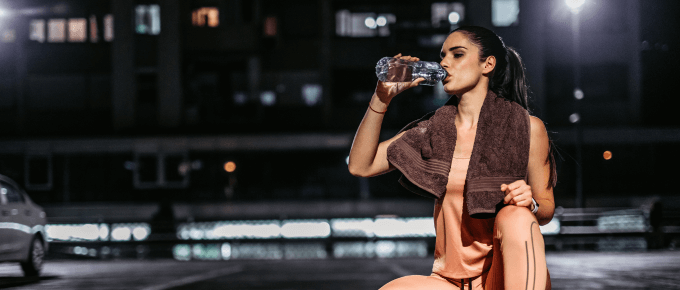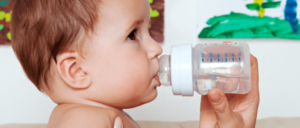Have you ever wondered How Long Does It Take After Drinking Water to Pee? It’s a question we’ve all asked ourselves, especially after having one or too many glasses of water or when we require a bathroom break.You don’t need to worry anymore, my fellow friends, since I’m here to answer your most pressing concern about the duration of urine urges and reveal all the mysteries.
Let’s start with the big picture before getting into the details: all the factors that affect how long it takes to urinate after consuming water. Numerous factors can affect it, such as your total level of hydration, the volume of water you drink, and even your bladder’s capacity.
For example, your body may require more time to process water and generate urine if you suffer from chronic dehydration. That being said, if you’re consuming too much, you may need to stop more often. However, your bladder’s capacity and size are also important considerations here.
But friends, don’t be afraid—it usually takes 5 to 15 minutes on average to urinate after consuming water. This is because water enters your bloodstream fast, which is processed into urine by your kidneys and is then held in your bladder until you desire to urinate.
If you are experiencing any of these symptoms, drink more water. Drink fluids throughout the day, especially if you’re working out or sweating a lot. And don’t wait till you’re thirsty to start drinking!
So there you have it, folks! The timeless query of how long it takes to pee after drinking water has been answered. Remember that staying hydrated is vital for overall health and well-being, so drink plenty of fluids and care for your bladder.
Factors Affecting the Time from Drinking Water to Urination
Several factors determine the time it takes for water to go from the bottle to your toilet, each of which plays a role in the complicated process of urination:
- Hydration level: The rate at which your body processes water is heavily influenced by your total hydration state. If you are chronically dehydrated, your kidneys may prioritize water retention, causing urine production to take longer. Water moves more quickly through your body if you’re well-hydrated, resulting in faster urine.
- Water Consumption: The amount of water you consume also plays a factor. Drinking a big amount of water could damage your kidneys, causing a sudden desire to urinate. Drinking little water throughout the day allows your body to digest water more slowly, reducing unexpected rushes of urination.
- Bladder Capacity and Efficiency: The size and function of your bladder also influence how long it takes to pee. Individuals with smaller bladders may need to urinate more frequently, while individuals with larger bladders can hold on for longer periods. A healthy, well-functioning bladder will also contract efficiently and empty with each pee.
Average Time Between Drinking Water and Urinating
Usually, it takes 5 to 15 minutes, on average, to urinate after consuming water. This time frame reflects the normal water absorption rate into the bloodstream, kidney filtering, and bladder filing until urinating.
Signs of Overhydration
Maintaining hydration is vital for overall good health, but balance is also key. Excessive drinking of water can cause overhydration, while insufficient water might cause dehydration.
To maintain adequate levels of hydration, it is essential to recognize the indicators of each disease.
Overhydration:
- Clear, colorless urine
- Frequent urination
- Headaches
- Muscle weakness
How to Tell If You Are Dehydrated
Dehydration can sneak up on you, so pay attention to your body’s hydration signs. Here are some warning signs that you may be dehydrated:
- Thirst: Thirst indicates your body’s need for fluids and is the most evident indicator.
- Dark-colored urine: Urine should be light yellow in hue. If it’s darker, it means you’re dehydrated.
- Dry mouth and lips: Lips and tongue are parched. A dry mouth and chapped lips indicate that your body is thirsty.
- Fatigue and headaches: Dehydration may lower your energy and cause headaches.
- Decreased urination: If you’re not urinating as regularly as usual, this could indicate dehydration.
Tips for Staying Hydrated
Maintaining proper hydration is essential for health in general. Here are some simple strategies to keep you hydrated throughout the day:
- Carry a water bottle with you and drink plenty of water.
- Set reminders on your phone or use apps to keep track of your water consumption.
- To add flavor and encourage drinking, infuse your water with fruits or herbs.
- Water-rich fruits and vegetables, such as watermelon, cucumber, and spinach, should be consumed.
How long does it take to process 1 liter of water?
The amount of water you drink, the size of your bladder, and your general level of hydration all affect how long it takes your body to process one liter of water. Normally, though, it takes your body two to three hours to completely absorb and expel one liter of water.
Is it normal to pee every 15 minutes when drinking water?
Generally speaking, it’s considered usual to occasionally urinate every 15 minutes after drinking water, especially if you’ve drank a lot of fluids. This is the result of your kidneys effectively filtering and getting rid of extra water in your system. If, on the other hand, you are continuously urinating more than once every 15 minutes, it may be a sign of an underlying medical condition, such as diabetes insipidus or an overactive bladder. If you are concerned about how frequently you urinate, it is advised that you speak with a healthcare provider.
Can too much water damage kidneys?
While drinking enough water is important for overall health, drinking too much water can cause hyponatremia, which occurs when the salt levels in your blood drop too low owing to excessive dilution with water. In severe situations, hyponatremia can produce headaches, nausea, confusion, and even seizures. Prolonged hyponatremia has the potential to harm the kidneys. As a result, it is essential to maintain a balance and avoid ingesting excessive water in a short period.
What makes you pee faster?
Several factors can cause bladder urgency and cause you to pee faster than usual:
- Diuretics: Caffeine and alcohol, for example, operate as diuretics, encouraging fluid loss and increasing urine frequency.
- Bladder irritation: Conditions such as urinary tract infections or bladder stones can irritate the bladder lining, causing increased urination.
- Anxiety or stress: Anxiety or stress can cause the production of chemicals that increase bladder contractions, increasing the desire to urinate.
- Certain medications, such as diuretics or those used to treat heart issues, can increase urine production and cause you to pee more frequently.
How can I relax my bladder to pee?
If you’re having trouble urinating because of an anxious or overactive bladder, the following strategies may help you relax and help urination:
- Create a calm and private environment: Find a quiet and peaceful location where you will not feel pressured or agitated.
- Practice deep breathing exercises: Deep, calm breathing techniques can help relax your body and mind, relieving muscle tension in the bladder area.
- Lean forward slightly: Leaning forward somewhat can assist in expanding the bladder neck and simplify urinating.
- Apply gentle pressure on your lower abdomen: Gently massage your lower abdomen: Gently pressing your lower abdomen just above your pubic bone might trigger bladder contractions and aid urine.
Sum-up
Let’s think about the complex functions of our bodies and the significance of staying well-hydrated as we conclude our investigation into the realm of urine cravings and the amount of time it takes to urinate after consuming water. The journey of water through our systems demonstrates the extraordinary efficiency of our physiological processes, with each stage playing an essential role in maintaining our overall health and well-being.
While the average time to pee after drinking water is 5 to 15 minutes, keep in mind that this period can vary depending on the person. Knowing the signs of dehydration and overhydration, and also understanding the factors that drive urine urgency, allows us to make informed fluid intake decisions and maintain adequate hydration levels.
Over the next week, challenge yourself to raise your daily water intake by at least 10%. Examine how this shift affects your energy, mood, and overall well-being. You might be amazed at how much of a difference even a minor increase in hydration can make.
Remember that hydration is the cornerstone of a healthy body and mind. By pointing out proper fluid consumption, you are enhancing your body’s ability to function optimally, allowing you to live a life full of energy, vitality, and well-being. Cheers to a well-hydrated life!


Leave a Reply